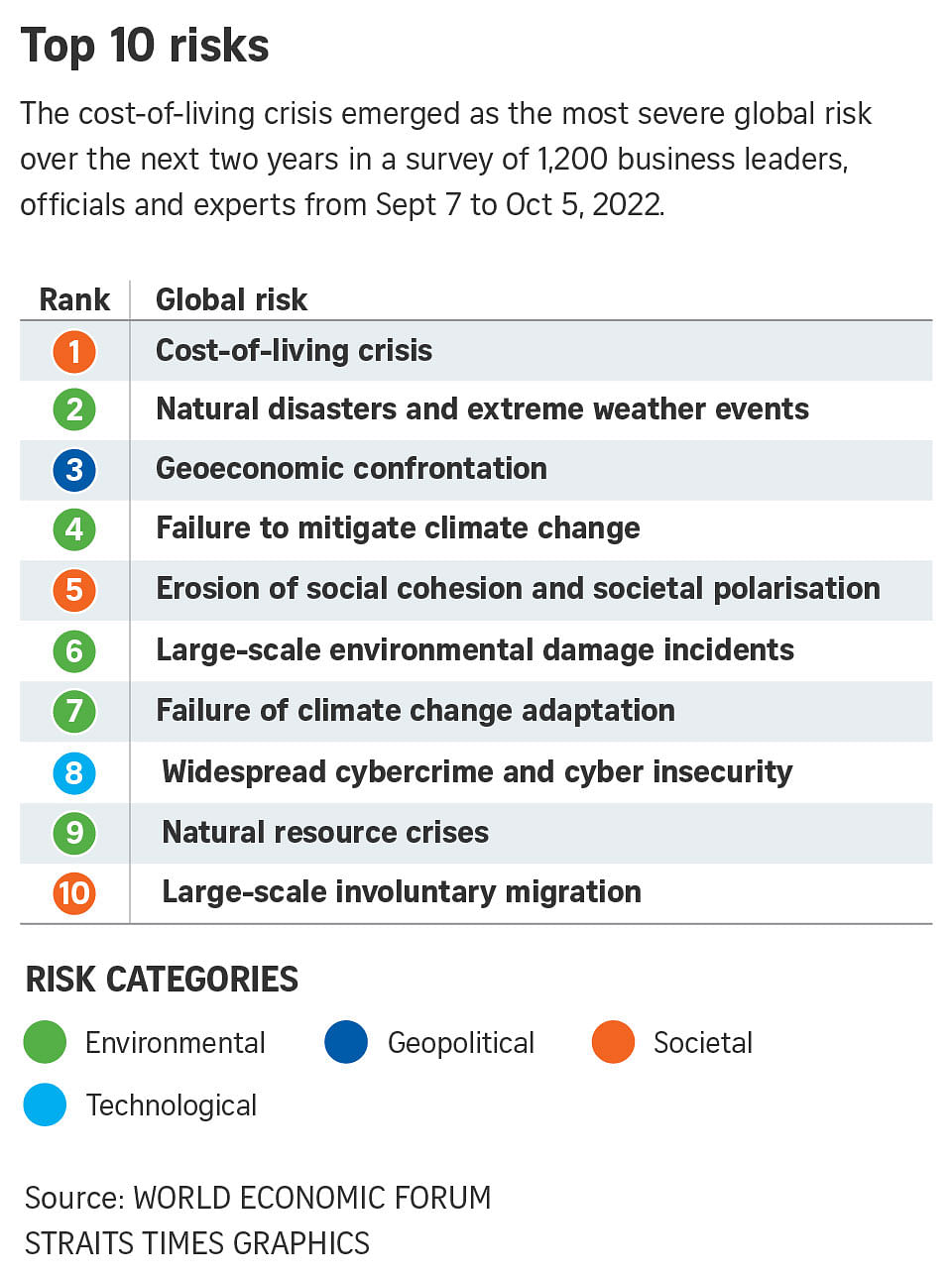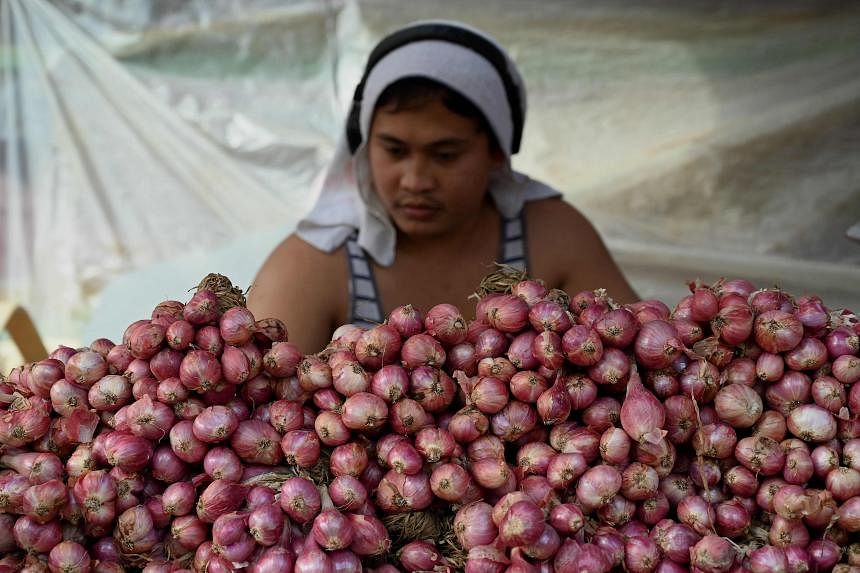SINGAPORE - Many Filipinos these days are in tears over onions – not because of the sting – but because a short supply has pushed prices to an all-time high. At nearly 600 pesos (S$14) per kilogram, onions now cost nearly three times as much as chicken, which retails at 220 pesos per kilogram.
In Japan, the culture of trust that used to allow store owners to leave stores unmanned has been broken after recent cases of theft. Many business owners blame the rising cost of living and economic downturn for such incidents.
And in 2022, India banned the export of wheat to preserve domestic supplies after a heatwave parched crops at a time when exports from Ukraine, the world’s fourth-biggest supplier of wheat, were throttled by Russia’s invasion.
The world is set to witness many more such instances of price hikes, cost-of-living concerns as well as export bans, said the World Economic Forum (WEF) in the latest edition of its Global Risks Report released on Wednesday, ahead of its annual meeting in Davos next week.
WEF anticipates a period of “polycrisis” in the coming months, marked by economic warfare, resource rivalries, the end of the low interest rate era, deglobalisation, a period of low investment and growth, and other challenges. “It’s a situation where different risks collide and their interdependency is acutely felt,” WEF said.
People will have to deal with the growing pressure of climate change impacts and an ever-shrinking window to keep global warming to no more than 1.5 deg C by cutting emissions to reach net zero by 2050.
“Together, these (challenges) are converging to shape a unique, uncertain and turbulent decade to come,” WEF surmised.
Sharing key findings of the report at a briefing in London, WEF managing director Saadia Zahidi said: “The short-term risk landscape is dominated by energy, food, debt and disasters.
“Those that are already the most vulnerable are suffering – and in the face of multiple crises, those who qualify as vulnerable are rapidly expanding, in rich and poor countries alike.”
She added: “Cooperation is the only way forward.”
Cooperation in a fragmented world is the theme of 2023’s annual meeting, which will be held next Monday to Friday.
Economic warfare is becoming the norm, with increasing clashes between global powers and state intervention in markets over the next two years. “Economic policies will be used defensively, to build self-sufficiency and sovereignty from rival powers, but also will increasingly be deployed offensively to constrain the rise of others,” WEF’s report said.
To curb domestic prices, around 30 countries introduced restrictions, including export bans, in food and energy in 2022, further pushing up global inflation, it also noted.
The report ranked the cost-of-living crisis as the most severe global risk over the next two years, but said this will peak in the short term. However, the prolonged war in Ukraine will mean “stubborn” inflationary pressures for governments and the central bank over the next two years.
“Supply bottlenecks due to the continuing pandemic, economic warfare, miscalibration between monetary and fiscal policies will raise the likelihood of liquidity shocks, signalling a more prolonged economic downturn and debt distress on a global scale,” WEF said.
The report was based on a survey of over 1,200 experts across academia, business, government, the international community and civil society between Sept 7 and Oct 5.

This year will be marked by further disruption to supply chains and impact investment decisions, said Ms Carolina Klint, risk management leader for Continental Europe at risk strategy group Marsh McLennan, a WEF partner in producing the report.
“At a time when countries and organisations should be stepping up resilience efforts, economic headwinds will constrain their ability to do so,” she said at the briefing.
WEF’s prognosis comes just weeks after the Economist Intelligence Unit’s (EIU) Worldwide Cost of Living 2022 report said prices in the world’s biggest cities have risen by an average of 8.1 per cent in local currency terms over the past year. This is the fastest rate for at least 20 years. New York topped EIU’s ranking for the first time, tying with Singapore.

